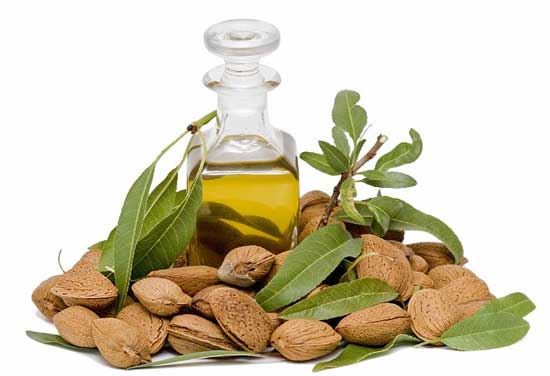In this articleWhat are essential oils?What are the common essential oils available? What are essential oils? An essential oil is a highly concentrated water insoluble liquid. It contains an aromatic compound that has been extracted from a specific plant. The oil is said to be essential because its scent uniquely identifies it as being from a particular plant. An essential oil can be extracted from virtually any part of the plant. This includes leaves, stems, seeds, roots, flowers, barks, etc. The process of extracting oil from the plant is a difficult and time-consuming one. A large volume of plant matter typically yields only a small quantity of pure oil. For example, an extracted essential oil may be only 1 percent of the weight of the extracted plant. This pure oil can be used for a variety of purposes, ranging from applications in the food industry and domestic cleaning products to being used in medicinal preparations. A branch of alternative medicine called Aromatherapy is completely devoted to the use of these fragrant oils. What are the common essential oils available? Essential oils are generally not used in pure form. They need to be diluted first which can be done using water or another oil called as a carrier oil. An essential oil can even be used in an incense stick. Here are some of the common essential oils available and a few of their uses. Lavender: Lavender is the most well known essential oil largely because it can be used for a variety of purposes. Its scent is naturally soothing and its fragrance is supposed to contain antibiotic properties. Because of this property, lavender oil can be used for domestic cleaning purposes. This can be accomplished by adding a few drops of lavender oil to a bucket of warm water and using this water to wipe down your kitchen cabinets and appliances. In aromatherapy, lavender oil is used to relieve stress. A few drops of lavender oil, mixed with a carrier oil, can be used to give a relaxing massage. Simply inhaling the lavender fragrance is also good for calming a stressful mind. Chamomile: This is another essential oil that is popular for its soothing properties. It is primarily used medicinally, in order to provide relief from a variety of aches and pains. This oil is especially helpful in treating children as it can be used for treating stomach aches, insect stings, and providing relief from the pain associated with teething troubles. Chamomile is also said to be an excellent way to get the creative juices flowing. Clove: This oil is not very well known as most people only use the entire clove for cooking purposes. This essential oil has a distinctive spicy scent and is known for its pain-relieving properties. An ointment containing clove oil can be applied to the body to reduce the pain caused by arthritis. It is also an ingredient in herbal toothpastes as it acts as an antiseptic. The sharp fragrance of clove oil is said to be able to provide relief from headaches as well as induce alertness. Rose: Rose oil is primarily used in the cosmetics industry because of its flowery scent. When burnt as incense sticks, it provides a soothing fragrance that is used to combat anxiety. Applying a preparation containing rose oil makes the skin suppler, and gives it a glow. Peppermint: This is another oil that can be easily recognised by its scent. Peppermint is used to deal with gastric ailments like upset stomachs, indigestion, stomach aches, etc. Chewing on a peppermint lozenge gets rids of bad odours in the mouth and keeps your breath smelling sweet. In aromatherapy, it is used to refresh you and keep you energised. Essential oils are beneficial if they are used carefully. Never apply or ingest a pure essential oil. If you plan to use them for medicinal purposes, always do so under the supervision of a qualified aromatherapist, who will guide and advise you on the proper way to use these wonderful products.
What are essential oils?
An essential oil is a highly concentrated water insoluble liquid. It contains an aromatic compound that has been extracted from a specific plant. The oil is said to be 'essential' because its scent uniquely identifies it as being from a particular plant.
An essential oil can be extracted from virtually any part of the plant. This includes leaves, stems, seeds, roots, flowers, barks, etc. The process of extracting oil from the plant is a difficult and time-consuming one. A large volume of plant matter typically yields only a small quantity of pure oil. For example, an extracted essential oil may be only 1 percent of the weight of the extracted plant. This pure oil can be used for a variety of purposes, ranging from applications in the food industry and domestic cleaning products to being used in medicinal preparations. A branch of alternative medicine called 'Aromatherapy' is completely devoted to the use of these fragrant oils.
What are the common essential oils available?
Essential oils are generally not used in pure form. They need to be diluted first which can be done using water or another oil called as a carrier oil. An essential oil can even be used in an incense stick. Here are some of the common essential oils available and a few of their uses.
Lavender: Lavender is the most well known essential oil largely because it can be used for a variety of purposes. Its scent is naturally soothing and its fragrance is supposed to contain
antibiotic properties. Because of this property, lavender oil can be used for domestic cleaning purposes. This can be accomplished by adding a few drops of lavender oil to a bucket of warm water and using this water to wipe down your kitchen cabinets and appliances. In aromatherapy, lavender oil is used to relieve stress. A few drops of lavender oil, mixed with a carrier oil, can be used to give a relaxing massage. Simply inhaling the lavender fragrance is also good for calming a stressful mind.
Chamomile: This is another essential oil that is popular for its soothing properties. It is primarily used medicinally, in order to provide relief from a variety of
aches and pains. This oil is especially helpful in treating children as it can be used for treating stomach aches, insect stings, and providing relief from the pain associated with teething troubles. Chamomile is also said to be an excellent way to get the creative juices flowing.
Clove: This oil is not very well known as most people only use the entire clove for cooking purposes. This essential oil has a distinctive spicy scent and is known for its pain-relieving properties. An ointment containing clove oil can be applied to the body to reduce the pain caused by arthritis. It is also an ingredient in herbal toothpastes as it acts as an antiseptic. The sharp fragrance of clove oil is said to be able to provide relief from headaches as well as induce alertness.
Rose: Rose oil is primarily used in the cosmetics industry because of its flowery scent. When burnt as incense sticks, it provides a soothing fragrance that is used to combat anxiety. Applying a preparation containing rose oil makes the skin suppler, and gives it a glow.
Peppermint: This is another oil that can be easily recognised by its scent.
Peppermint is used to deal with gastric ailments like upset stomachs, indigestion,
stomach aches, etc. Chewing on a peppermint lozenge gets rids of bad odours in the mouth and keeps your breath smelling sweet. In aromatherapy, it is used to refresh you and keep you energised.
Essential oils are beneficial if they are used carefully. Never apply or ingest a pure essential oil. If you plan to use them for medicinal purposes, always do so under the supervision of a qualified aromatherapist, who will guide and advise you on the proper way to use these wonderful products.































